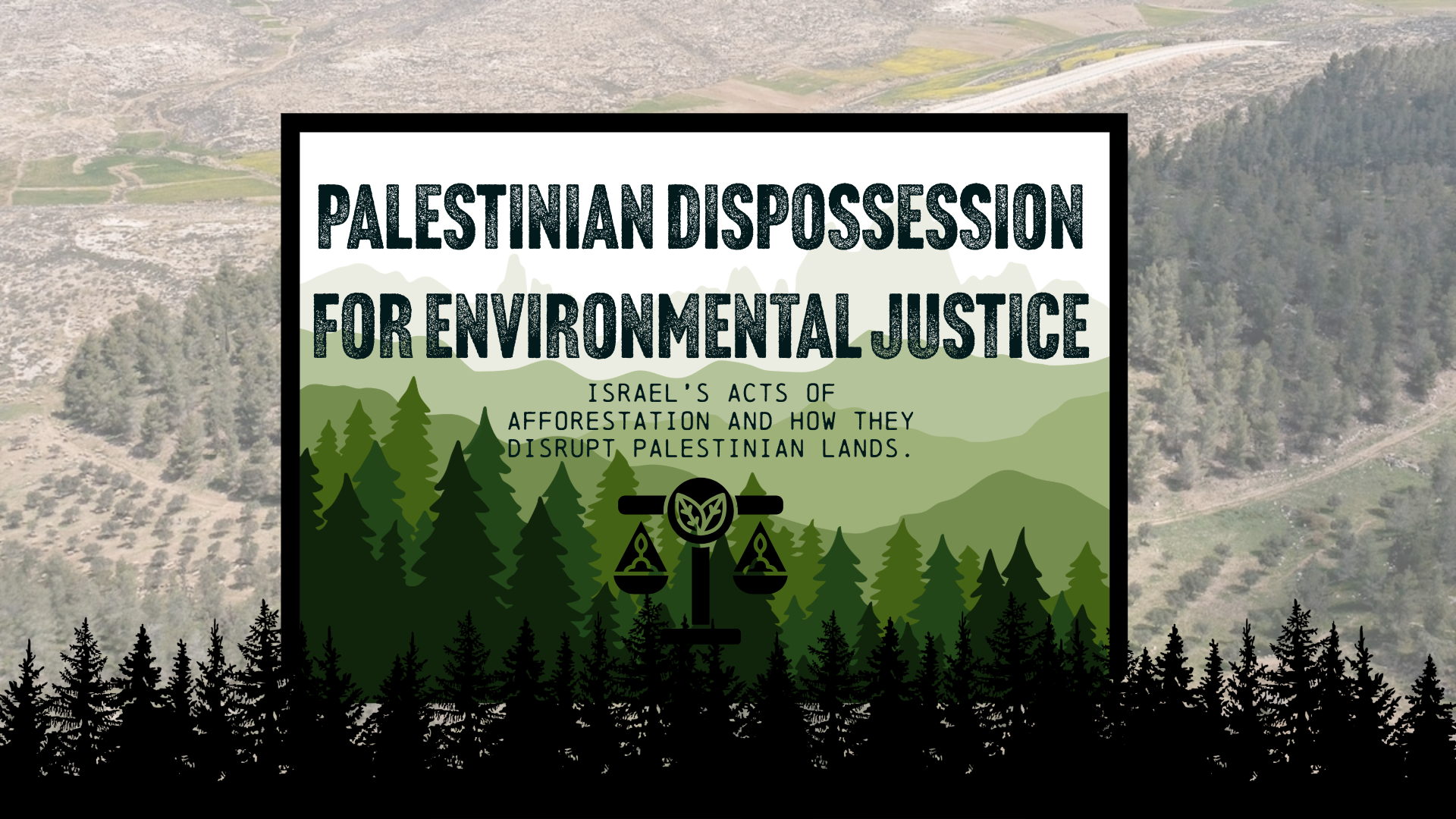In light of Earth Week, a teach-in titled “Palestinian Liberation is Environmental Justice” was recently on held on Bryn Mawr campus. The event was spearheaded by Clara Wells-Dang ‘27 and held on April 15, kicking off promptly at 4:00 p.m. in Dalton 300. The hour-long teach-in was advertised as a means educating students on the evolution of environmental justice, what the environmental justice movement stands for, and how it relates to the current Israel-Palestine conflict.
According to the AAMC Center for Health Justice, environmental justice “embraces the principle that all people and communities have a right to equal protection and equal enforcement of environmental laws and regulations.” This means both environmental protections, as well as protections for the people. This quote aligns with a handout given out at the teach-in titled The Principles of Environmental Justice (EJ), which included tenets such as people “free from any form of discrimination or bias,” “the right of all workers to a safe and healthy work environment,” and “the fundamental right to political, economic, cultural, and environmental self-determination of all peoples.”
Wells-Dang went on to to center these principles in their discussion of the Israel-Palestine conflict. On one of their slides, they stated that “any group that is actively engaging in resistance in Palestine is engaging in environmental justice.”
Wells-Dang alleged that the Israeli state went against these aforementioned principles, although they noted that there were Israeli organizations that had acted towards helping the environment. A main point that was brought up was Israel’s land dispossession of Palestine through afforestation; Israel has historically made a policy of planting invasive pine trees, which are native to Europe.
“The JNF (Jewish National Fund) has planted over 250 million trees, replacing native olive trees with pines and other non-native trees,” said one of the speakers, who did not identify themselves to the Bi-Co News. “This afforestation has two purposes, to hide the ethnic cleansing of Palestinians and to keep the Palestinians from coming home.”
Despite the planting of the trees seeming environmentally beneficial, Wells-Dang argued that it in fact goes against the principles of environmental justice.
“The path to climate justice travels through a free Palestine,” Wells-Dang said. “There will never be a climate justice without a free Palestine because the origins of the climate crisis are not in the burning of fossil fuels.”
